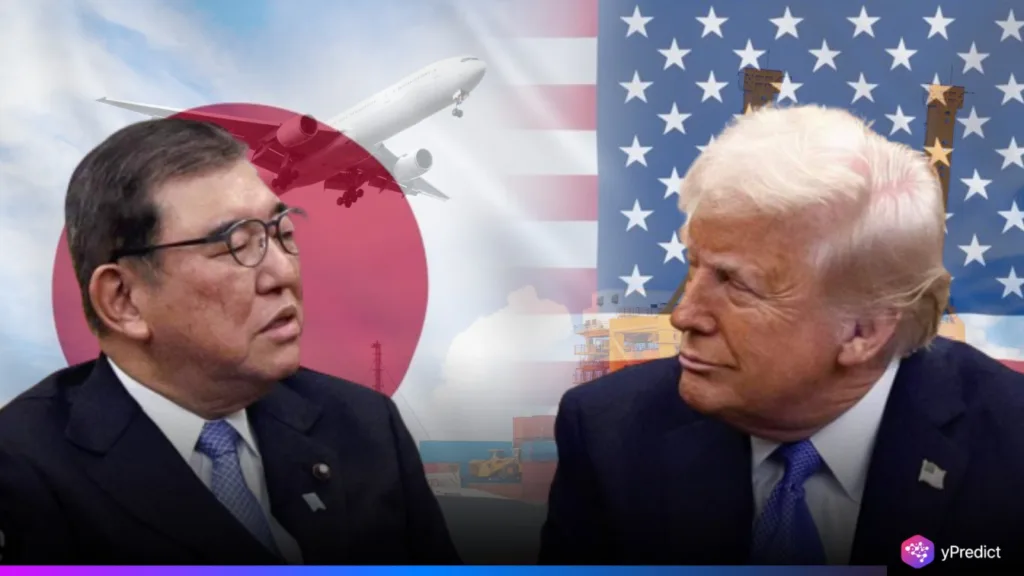
In a major step toward deepening economic ties and accelerating clean tech innovation. Japan has announced a $550 billion investment in the U.S., backed by 15% reciprocal tariffs and potentially tied to its ambitious GX Promotion strategy. This is a remarkable turnaround from previous policies. Japan committed $550 billion to U.S. investment as it redefines trade relations under a new bilateral framework, eliminating the 25% tariffs proposed by the U.S. and imposing mutual 15% reciprocal tariffs. This announcement marks a new phase of economic cooperation between allies and departs from the trade threats of the Trump era.
Japan has been developing a credible reputation as the largest source of foreign direct investment to the United States. It appears to be strengthening its economic presence in the U.S. The U.S. Department of 2023 report had previously noted Japan’s significant investment in the U.S., in addition to this new series of investments.
U.S. Profit-Sharing Claim Raises Eyebrows
The U.S. claim that it would receive “90% of the profits” from this agreement generated doubt among economists and trade experts despite the celebratory tone. The word “profits” is not mentioned in this agreement, suggesting confusion about sharing profits. Past agreements like the 2019 U.S.-Japan Trade Agreement were only instincts of reductions of tariffs, market access, and other aspects without mention of shared profits. Without formal economic modeling or clear fiscal parameters, experts see this claim as speculative. AI policy analysts suggest the idea may be more political than practical. This is aimed at shaping public perception rather than defining enforceable trade terms.
Japan Backs GX Promotion, Billions May Flow to U.S. Green Tech
One of the most promising angles of this partnership may stem from Japan’s GX Promotion (Green Transformation) Act. The goal of this policy is to mobilize 150 trillion yen by 2033 for decarbonization activities. Although formal documents don’t explicitly correlate the GX Promotion with the U.S. investment package, analysts suggest that Japan could support U.S. renewable energy and AI-based climate tech initiatives.
If this were to happen, Japan would become the face of the U.S. clean energy push and would lead new efforts to support the use of AI to track carbon, optimize power grids, and find emissions reduction solutions. Japan’s GX framework already encourages overseas partnerships. The U.S. offers a scalable tech and energy market ready for such capital inflows.
Reciprocal Tariffs Reflect Balanced, Strategic Pivot
The decision to apply 15% reciprocal tariffs signals a major policy pivot from the previously threatened 25% U.S.-imposed levies. Both governments characterized their decisions as a calculated compromise intended to prevent trade escalation. This will give supporting fair competition in the marketplace. Observers of trade policy surmise that these tariffs likely encapsulate strategic industries with high AI potential, like battery production, clean energy hardware, and chips. The intention of protecting domestic production without thwarting innovation in trade protectionism.
Through tariff level changes instead of tariff escalations, Japan and the United States demonstrated a certain openness to protecting aspects of their domestic industry. The more lenient tariff levels are likely to support the importation of AI hardware from Japan. This includes parts and systems from robotics and sensors, as well as industrial automation tools. These are all of which are fundamentally required.
Japan Eyes Future Growth Through AI and Clean Tech
Although there is lingering uncertainty surrounding many detailed aspects of this Japanese investment. Alongside reciprocal tariffs and the potential alignment with GX Promotion. The overall implications could be enormous and change the trading environment for years to come. Japan and the US are now in an incredible position to co-develop future-oriented sectors. This will be done in sectors like AI-driven sustainability, climate tech, and digital infrastructure.
Whether both nations keep their economic and environmental commitments. However, for the time being, the strategic tenor of this deal indicates that the two nations. This has climbed aboard an urgent collective journey towards an AI-enabled clean energy future.







